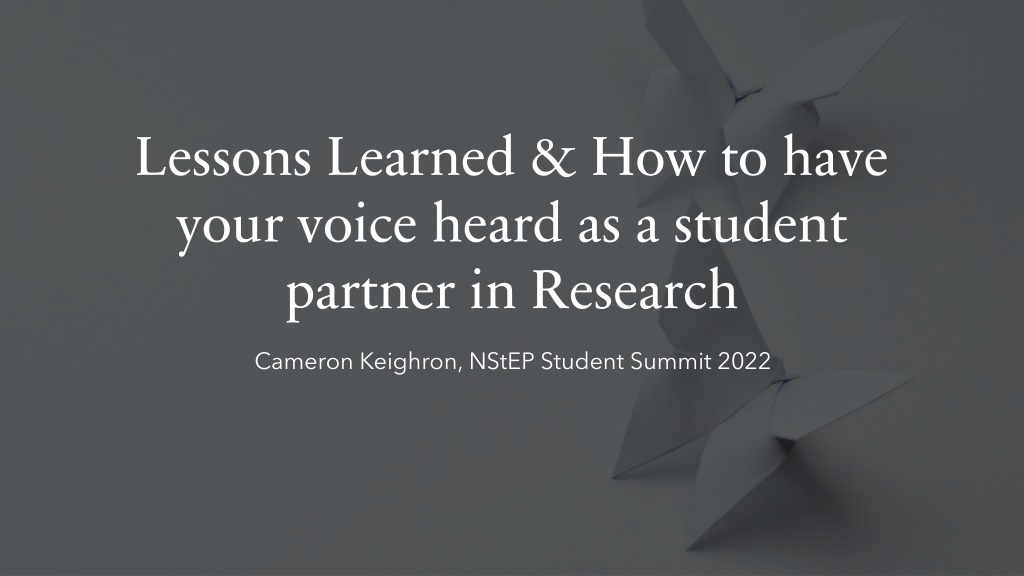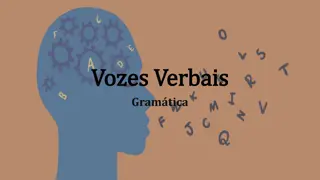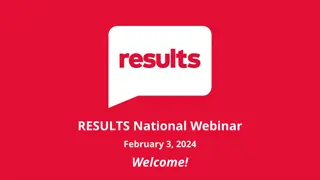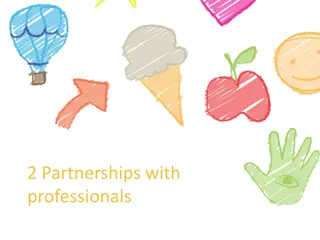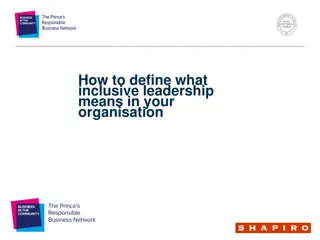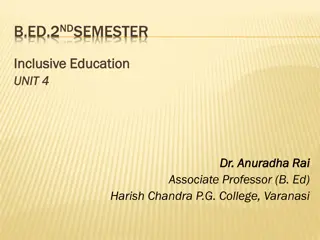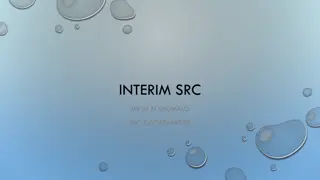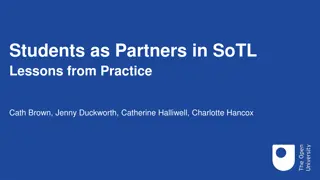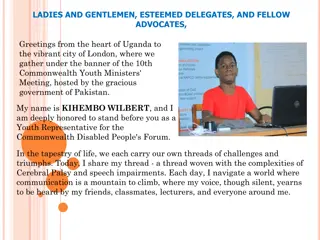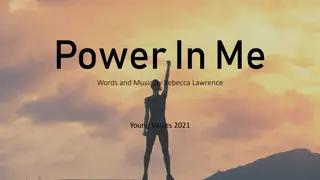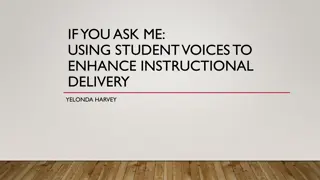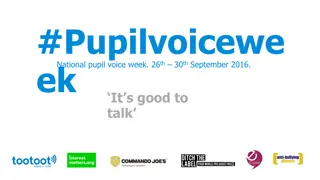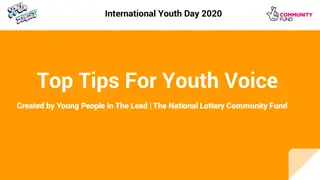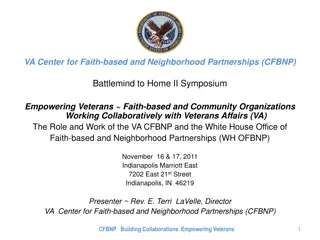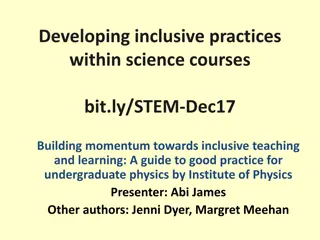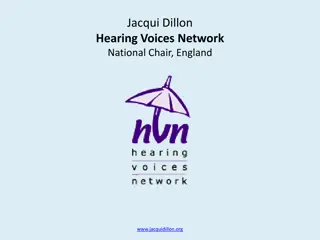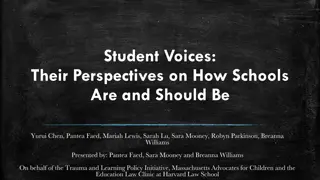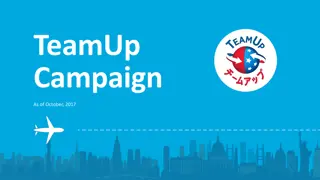Empowering Student Voices in Inclusive Research Partnerships
Understanding the importance of including student perspectives in research design and implementation to overcome barriers to inclusion across diverse student groups. Key lessons learned in fostering meaningful student partnerships and strategies for amplifying student voices in academic settings.
Download Presentation

Please find below an Image/Link to download the presentation.
The content on the website is provided AS IS for your information and personal use only. It may not be sold, licensed, or shared on other websites without obtaining consent from the author. Download presentation by click this link. If you encounter any issues during the download, it is possible that the publisher has removed the file from their server.
E N D
Presentation Transcript
Lessons Learned & How to have your voice heard as a student partner in Research Cameron Keighron, NStEP Student Summit 2022
PhD Student NStEP Student Trainer Student partner Inclusive Teaching & Learning Who am I? Former SU Education Officer NUI Galway Patient Advocate in Research
Menti.com Code:6753 9116
Introduction Two inclusive learning projects: Undergraduate project (2018-2021) College of Business, Public Policy and Law funded by the NUI Galway Student Project Fund and others Postgraduate project (2020-2021) College of Business, Public Policy and Law; School of Mathematics, Statistics and Applied Mathematics; School of Physics funded by the National Forum for the Enhancement of Teaching and Learning in Higher Education
Identifying barriers to inclusion The literature can tell us much, but crucial to hear from students experiences of inclusion and exclusion may differ across cohorts, disciplines and Colleges. Important not to assume that we already know what the barriers are. Combine quantitative and qualitative approaches diverse groups need multiple means of engagement.
Target Groups Students with disabilities International / intercultural students Students of different genders LGBT+ students Transgender students Mature students Students with caring responsibilities Students from disadvantaged socio-economicbackgrounds.
Menti.com Code: 9096 4048
Lesson 1: Project/Research Design Design Student voice should be included in all aspects of research design from initial idea to execution. It s hard to create impact when a project has been designed without your input Tips: 1. Build in student reviewers to research calls 2. Create project funding calls specifically for student/staff partnerships 3. Consider having student partners as a co leads as a requirment
Lesson 2: Research Outputs Important not to assume that we already know what the barriers are student participation in research often asks 1-2 students what the issues are, it s important not to assume they have all the answers. Equally as important, to not assume we can all speak for all students. Tips: 1. Create wide consultation around the subjects of research funding
Lesson 3: Student Opportunities Not all students was to be project leads, or student partners, and it s important to create opportunities for engagement in many ways. Tips: 1. Design multiple ways of engagement surveys, focus groups, interviews, information sessions etc. 2. Don t assume those who do not want a leadership role, simply do not want to engage
Lesson 4: Funding & payments It s important to recognize the time, value and expertise that your student partners/speakers may be giving to the research project and to adequately reimburse them for this. Tips: 1. If you have an event where you pay other speakers, your student speakers should also be paid. 2. If the staff research team are paid to attend meetings, so should the students. Student time isn t worth less.
Lesson 5: Survey/Research Fatigue Students are constantly overwhelmed with surveys and questionnaires. It s important to not to create multiple research projects aimed at the same thing, and it s also important to look at the timing of your planned data collection. Tips: 1. It s ok to combine multiple projects looking at the same thing often this brings a much more robust team to the table. 2. Look at the academic calendar of your institution
Lesson 6: Student Voice There is a fine balance to speaking about your own student experience & your understanding of the wider population to also being a tick box exercise for projects. You don t have to be the only student voice on a project. Tips: 1. Create a robust group of student representatives proportional to your institution 2. It s ok to say no. You can ask your team to recruit someone else for particular tasks.
Lesson 7: Power dynamics Your role as a student partner is not only to just give your experiences as a student. You understand the real and tangible demands and breaking points of the student journey, your input into solutions is key to the success of a research project. Tips: 1. Ask for discussions around potential research outputs, approaches, dissemination to be inclusive of your role. 2. Ensure that your voice at meetings is heard, minuted and asked for if not speak to the chair.
Lesson 8: Next Steps Whether your research project discovers 10 new research points about the student experience or none create opportunities to talk about next steps. How do we build on this momentum, how do we create sustainable ways of capturing the evolving student experience? Tips (mostly for sabbatical officers) 1. Address the cyclic and short-lived pots of funding aimed at research (many institutions rely on evidence-based research to implement meaningful change) 2. Ask the research team from the start what is the purpose of this?
Final Thoughts Research needs students in more ways than one Trust in research is needed (survey fatigue, student engagement etc) You have more power than you think, but more than that, you have more to contribute that you believe We have opportunity to create meaningful and robust research mechanisms
